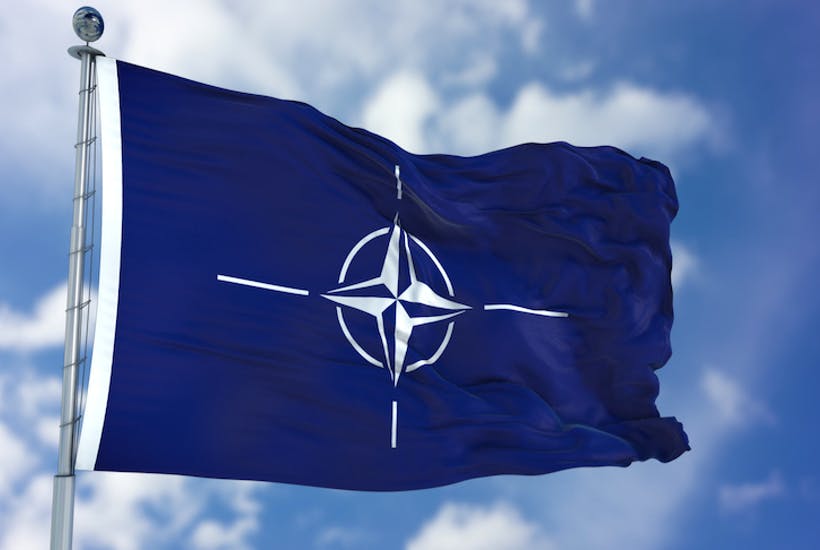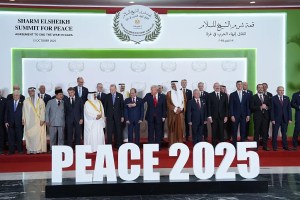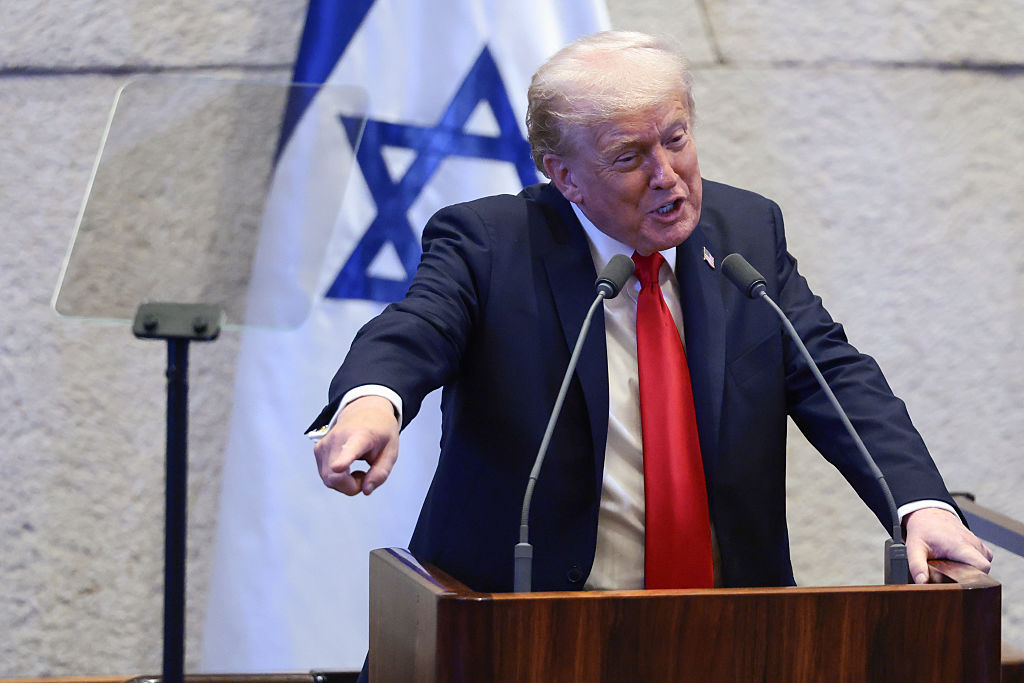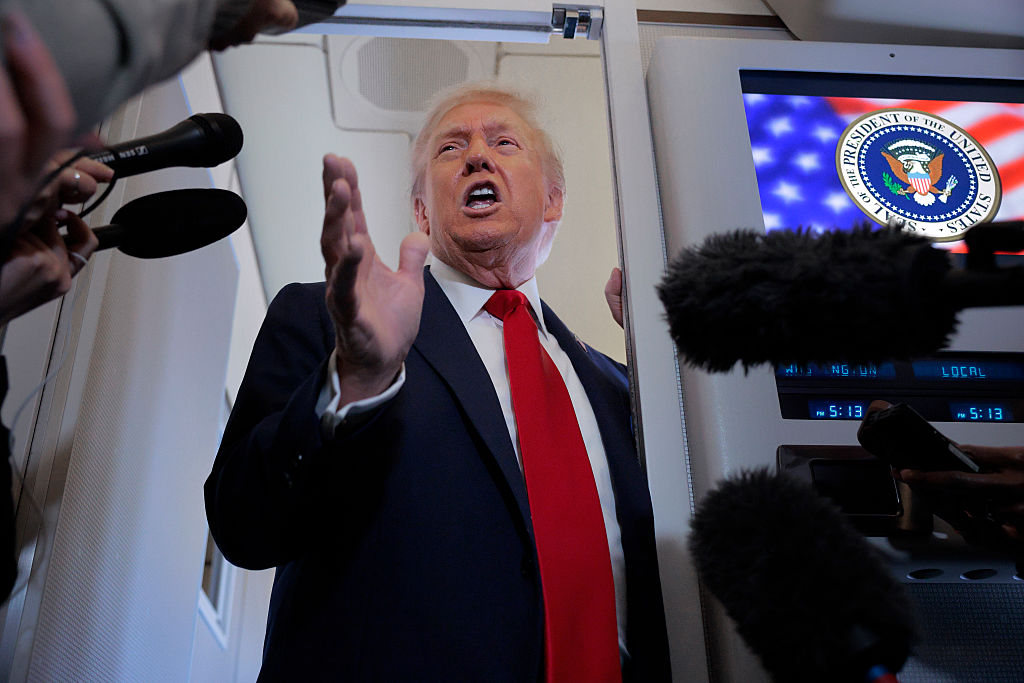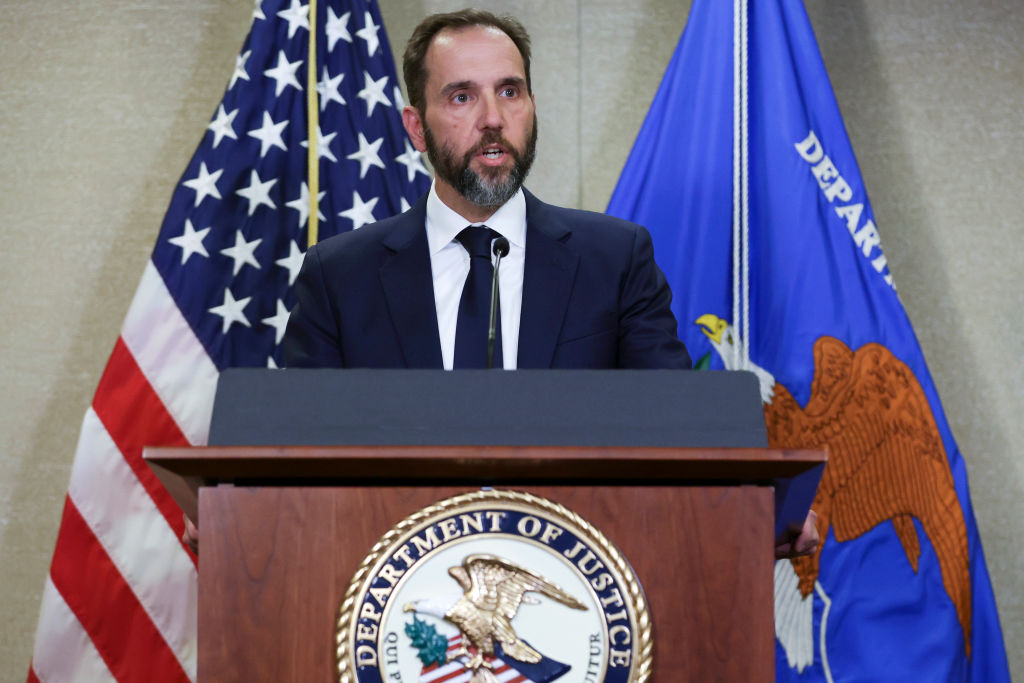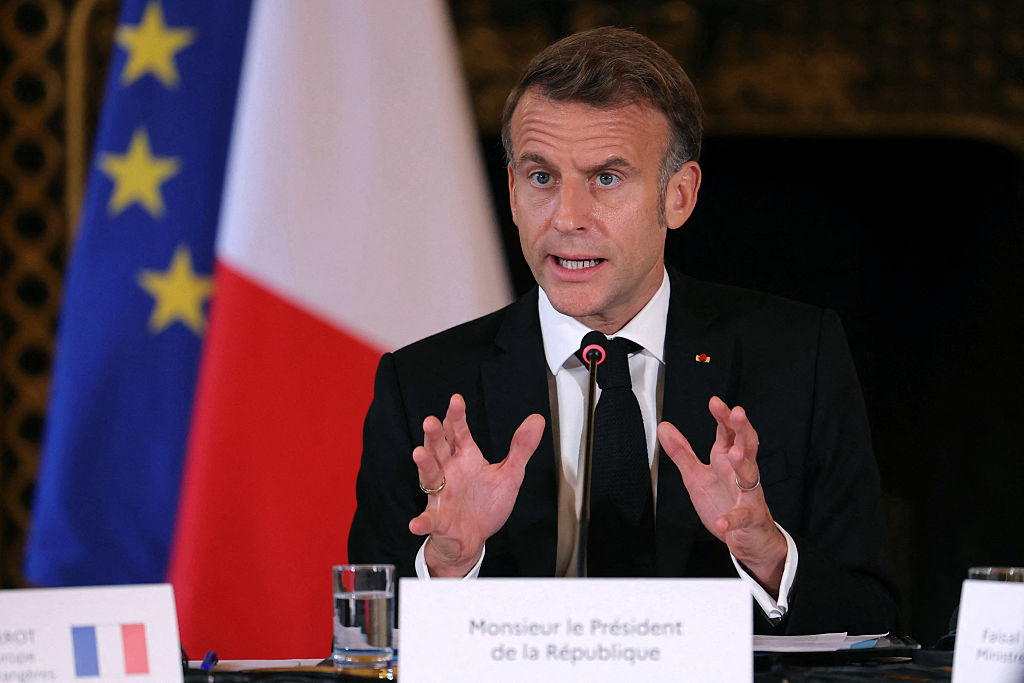Washington, DC is a town full of tradition. There’s the State of the Union address at the beginning of the year and the cherry blossom festival in March and April, when tourists around the world descend on the nation’s capital. There’s the ritualistic glad-handing, ego-stroking, and gossip-milling. And, of course, there’s the never-ending infatuation with the North Atlantic Treaty Organization — the transatlantic security body that helped keep Europe whole, free, and at peace during the Cold War.
The Soviet menace, however, has been dead and buried for close to 30 years. Ever since that infamous day in 1989, when the world woke up to the news that the Soviet machine was tumbling down, Nato has struggled to justify its existence. Nato, after all, was a military alliance designed for the explicit purpose of keeping the Americans in, the Russians out, and the Germans down. By the time the Berlin Wall fell, all three of those objectives were met. What was the point of keeping an organization in business if its goals were accomplished?
Nato, as we know, didn’t close up shop. Instead, it sought to find a way — any way — to stay in business. Throughout the 1990s and early 2000s, the alliance expanded into the very states in Central and Eastern Europe the Soviets once dominated. George Kennan, the intellectual heavyweight who laid out the West’s Soviet containment strategy, argued that enlargement would be a ‘tragic mistake’ and cause the Russians to negatively react.
And this is exactly what the Russians did. The Vladimir Putins of the world were none too pleased with seeing a US-led military alliance drifting closer and closer to Russian borders. But because Moscow was a weakling who couldn’t do much about it, the West’s ears were shut.
Now, Nato is not only overextended but searching for relevance in a world where great power competition is more likely to occur in East Asia than in Europe. Scholars like MIT professor Barry Posen who have been warning about Europe’s total dependence on America for its security have been callously dismissed by an establishment in Washington and Brussels far more comfortable coasting than addressing the massive moral hazard that has characterized the alliance for decades.
Nato’s problems are deep — even if conventional politicians and thought leaders on both sides of the Atlantic choose to willfully ignore them. This apparently includes Nato Secretary-General Jens Stoltenberg, who in a speech on April 3 chose to give a history lesson about the alliance’s Cold War successes rather than force a conversation that should have already started.
The most obvious problem is the totally unequal burden-sharing prevalent within Nato, where one partner — the United States — spends infinitely more money on defense than all the other members combined. We hear a lot about how non-US members are finally beginning to spend billions more. And yet the numbers don’t lie: 22 out of 29 countries, an astounding 75 percent of Nato’s total membership, are below the 2 percent GDP benchmark for defense spending. The figures have rightly driven President Donald Trump crazy, a man who has no patience for those who skimp out on the cheque or take advantage of America’s generosity and good nature. The hectoring has hiked the blood-pressure of the Atlanticists who for decades gently prodded the Europeans to spend more — only for the prodding to be summarily dismissed.
But money isn’t the only issue. There is also the problem of capability. If a great power conflict were to erupt today, Europe would be caught totally unprepared and would be completely overwhelmed. American soldiers would be expected to fill in the gaps and die on behalf of Europe. European governments have neglected their own security out of political convenience.
The Bundeswehr, the armed forces of Germany, is a case study. Hans-Peter Bartels, the German parliament’s military commissioner, surveyed the German military and found planes, ships, and tanks often stuck in maintenance depots, unable to deploy. Even the UK, America’s closest ally, is not up to snuff. As the House of Commons Select Defence Committee wrote last June, there are ‘serious deficiencies in the quantities of armor, armored vehicles and artillery available to the British Army.’
Trump, quite frankly, is sick of it. Many Americans feel the same way, questioning why tens of thousands of US troops should be stationed in Europe to defend one of the richest continents in the world. Stoltenberg tried to put those concerns to rest. Yet unless and until the security burden of Europe shifts to the Europeans, the concerns will only multiply.
This article was originally published on The Spectator’s UK website.



